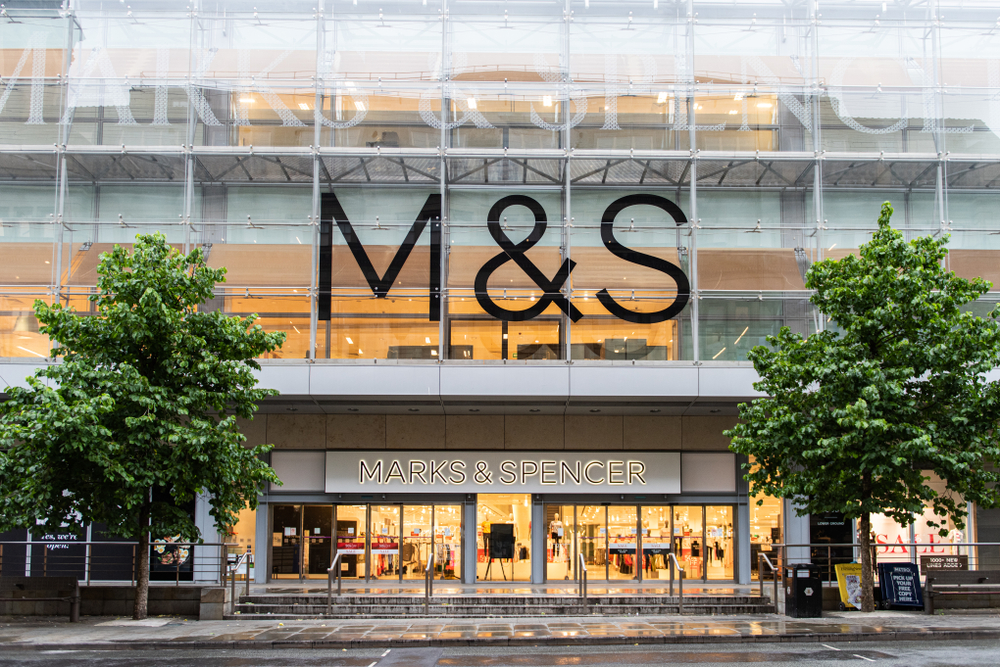Duncan Buchanan of the Road Haulage Association looks ahead to a world where the UK is no longer a member of Europe’s free market or customs union. Jonathan Wright reports
The question of what kind of customs arrangements will be in place once and if the UK finally leaves the European Union is one of the biggest issues that Duncan Buchanan has to deal with on a day-to-day basis. It’s also, as the policy director of the Road Haulage Association (RHA) jokes, not an issue on which it’s easy to offer advice or opinions based on concrete information.
“There are so many unknowns,” he says when InternetRetailing asks him what kinds of customs arrangements we may see between the UK and the EU in the years ahead. “You almost always end up sounding like Donald Rumsfeld talking about ‘known unknowns’ and ‘unknown unknowns’ but sadly, that is where we are.”
For retailers, this is hardly reassuring in that, to continue the homage to the George Bush Jr’s gnomic secretary of defense, it suggests a picture of unknown uncertainties up ahead piled on top of the known uncertainties of an already volatile British political and economic situation. Nevertheless, this is the reality with which British retailers, which in recent years have put huge efforts into building international sales, have to contend. In practical terms, what can retailers do to prepare for a post-Brexit world within the logistics parts of their businesses?
“For the present, there is very little British retailers can do to prepare for Brexit”
Duncan Buchanan, RHA
Again, Buchanan’s words are hardly reassuring. “For the moment, there is in fact very little you can do to prepare,” he says. That’s not to say the RHA, which lobbies on behalf of the road transport industry, isn’t putting pressure on the government as it tries to work out how to help its members adapt to a post-Brexit world. Leaving aside the issue of British trucks being able to travel freely within Europe – “That’s a technical issue and we expect it to be resolved one way or other, and there will be a system in place” – it has concerns in two main areas:
• Customs and border controls: with the government having already expressed a commitment to leaving the customs union, what arrangements will be in place in the longer term at Britain’s ports and at either end of the Channel Tunnel?
• Access to labour: many parts of the supply chain in Britain rely on labour from Europe. Already, there’s anecdotal evidence that EU citizens are returning to the continent. How will wholesalers and retailers cope if they can’t recruit the warehouse staff and drivers they need?
The answers to these questions will gradually emerge in the months and years ahead but, even if retailers’ scope for preparation is as limited as Buchanan suggests, it’s still essential that businesses should at least have an understanding of the issues here. To begin with customs and border controls, Theresa May has made it clear that her vision of Brexit is not the ultra-soft version favoured by parts of the political elite, but would involve leaving the customs union and the single market, in part to enable the UK to negotiate its own trade deals.
But what customs system will replace current arrangements? “We have issues with de minimis,” says Buchanan. “If something is worth less than ‘x’, is it still going to need customs clearance? We don’t know. The government has indicated that everything is going to require a customs declaration – that’ll be import and export, in and out of the United Kingdom – so if that is the case, we would be expecting at least a five-fold increase in the number of customs declarations being processed. That needs to be resourced. It needs to be resourced in customs, it needs to be resourced in companies that have no expertise in doing customs formalities now. It’s a serious issue.”
One solution here may be, according to Buchanan, where “you actually declare your goods before they get on a ferry, so that by the time you arrive in the UK, or you arrive in France, your goods are already customs cleared”. The Norwegian-Swedish model where there is “effectively one border, one customs control, and that customs control does the processes for both sides of the border” is another potential way forward. The trouble here is that nobody is too sure whether either system is going to be adopted and in the meantime, there are worries over whether HMRC is doing enough to prepare for whatever new system is favoured, or even whether the HMRC has enough staff to deal with this increased workload. “We don’t think it’s credible to believe the existing, under-pressure customs service and border force is going to be able to deal with massive increases in bureaucracy,” says Buchanan.
In addition, worries over the M20 persist. It ends at Folkestone and if things back up, it could become a long, permanent lorry park for vehicles waiting to get through customs. For retailers used to a world where “it’s about as difficult to deliver to Düsseldorf as it is to Dorking”, the prospect of stock stuck here for days is disquieting.
Getting the right people
Turning to the issue of recruitment, as we’ve already noted, jobs in warehouses and driving (and in agriculture too, specifically the grocery sector) are often undertaken by non-Brits. Buchanan says companies in retail and logistics need to be thinking about training staff today to prepare for a world of tomorrow where this labour resource may not be available.
He also advises doing an inventory of in-house expertise. “I would say the labour side is probably the one thing that anyone working in this area needs to be thinking about because that is the one thing you as an employer can control yourself,” he says. “In respect of customs, if you are already importing from outside the EU and you have expertise inside your organisation, handling customs, I would actually recommend that you use the resources you have in your company to train more people, to do that type of work, so that there are people who understand how customs work. That’s actually a necessary protection because, in a year’s time, those people themselves might become very attractive to other retailers, and other people might try to poach them.”
It’s going to happen anyway…
But whatever preparations retailers make, the fact remains the UK currently still remains on course to leave the EU and that this will be hugely disruptive. If and when it happens, retailers may need to look again at how they operate. In particular, in a world of just-in-time supply chains, retailers may need to think about having more contingency built into the way they operate.
“What people do need to think about is whether or not they are going to need to hold higher stock levels for items if the supply chain slows down and it takes 48 hours to get something through that currently take 24 hours,” says Buchanan. “That may require additional capacity in warehouses for stock. The balance here lies around investing in things that may not be needed, and people don’t like doing that.”
On the plus side, Buchanan points out that UK retailers have long had supply chains and customers outside Europe. Some, thanks to the decline in the pound’s value (sterling dropped as low as $1.20 in January 2017), may even find they have more such customers in the future, although such optimism needs to be balanced against the inflationary effect of devaluation on the cost of imports.
“Retailers and logistics companies are very adept at managing change, so they will find ways of coping,” concludes Buchanan. “It may not be pleasant, it may actually be expensive, it may involve friction and challenge, but the retail sector is very competitive and very dynamic and reacts relatively quickly to changes in circumstances. They’re used to working in that type of pain. So I wouldn’t be too depressed about the ability of retailers to adapt quite quickly. There may be gaps on the shelves for periods of time until people get used to new arrangements, but those things will be adapted to relatively quickly. And from our point of view, a couple of years is probably sufficient to make the necessary changes within companies.”






